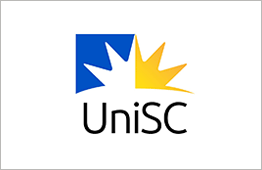19 things I wish my research student knew
Posted by Jessica Schults
on 12 October 2020
Thinking of undertaking research studies, we asked 3 experienced supervisors what they wish their students knew:
By Dr Gillian Ray-Barruel:
- A PhD is about the learning process, not just the finished product.
- Be an active student member of your university community. Networking is invaluable for your career and you'll make some interesting new friends.
- Go to all the free HDR student education sessions offered by your university. You may/may not learn something useful at each one, but you will meet other students and enrich your own life experience.
- Go to other students' confirmation seminars. You'll pick up ideas on how to do (or not do) your own, and other students will appreciate your support and may return the favour.
- Follow a couple of HDR student blogs (e.g. The Thesis Whisperer, The Research Whisperer). You won't feel so alone when you're struggling with balancing your research and your life.
By Associate Professor Andrew Bulmer:
- Do a PhD because you love answering questions and making a difference to the world not for the title.
- You'll need to spend 80% of your time planning/troubleshooting and 20% of your time executing your project, so patience, planning and a cool head is crucial.
- Navigating through a PhD requires a large degree of self-motivation and independent work (under guidance) if you love a challenge and consider yourself highly resilient, a PhD would be well suited for you.
- The main way we can influence practice/the world is publishing our work. This is a long but incredibly rewarding experience and will suit individuals who enjoying writing and having their work acknowledged.
- Understand that you will not be wealthy when you complete a PhD (scholarships are available and are tax free, but they are very modest in their funding). If you work hard, the short term sacrifice can be worth the longer term gain and career advancement.
By Professor Claire Rickard:
- Regular supervision meetings are important or we will both lose track of where you are up to. Even if you feel you have made no progress since the last meeting, a quick catch up is always
- The supervision meeting is the time I have put aside just for you, I appreciated if you can be ready and organised and come with an agenda so we make the most of it.
- I want you to succeed but my role is to guide you through the process and the expected standard - not to tell you what to do. Especially after your first year, I expect you to become more self-directed and expert in your topic and methods
- Rightly, your PhD is your major/a major focus of your week, but for me, my week is mostly be spent thinking about numerous other projects, students and responsibilities.
- You can make me look good or bad your reputation effects mine, please let's make each other look good and not the alternative.
- I may be able to help you with additional networking or other professional opportunities, but I will be reluctant to do that if you are not making good progress with your PhD. I know that has to be achieved and I don't want to distract you.
- My allocated teaching hours to supervise you are less than one hour per fortnight-even If I am your primary supervisor, and you are a full-time PhD student. This is meant to cover all meetings, emails/phone calls, and reading your work. If I am your associate supervisor or you are a part-time student then my allocated hours are even less. Extra time I spend on supervision has to come from my other students, teaching, research or administrative responsibilities.
- I want you to graduate just as much as you do, but I feel a responsibility to ensure that your work is of excellent depth and quality so that you will get glowing examiner reports.
Last thing, don't do a Masters or PhD in isolation, reach out, find your village and let us support you.
Next week we will share what research students wished they knew, so stay tuned!
Jess
) Author:Jessica Schults
Author:Jessica Schults| Tags:higher degree researchAVATAReducation |








